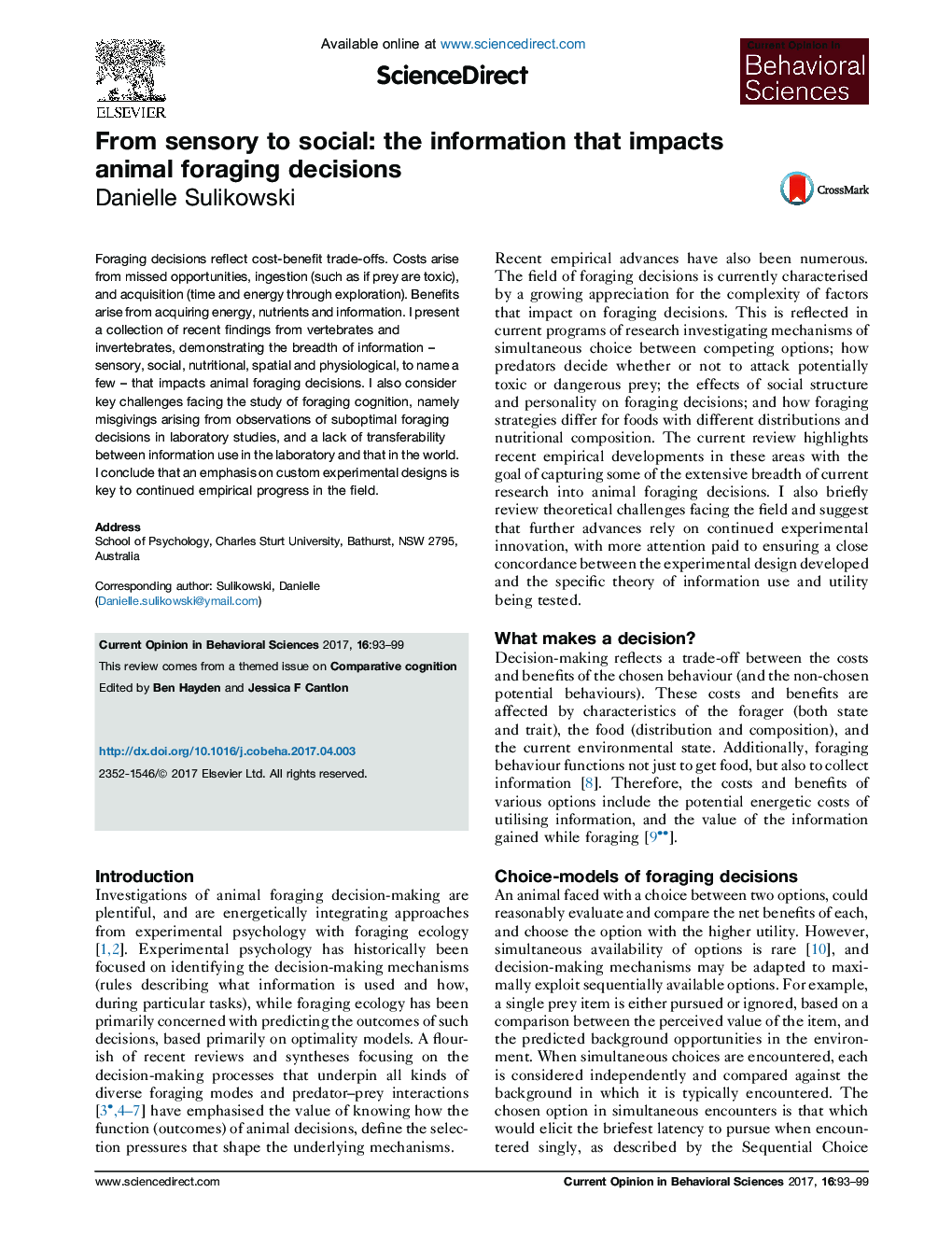| Article ID | Journal | Published Year | Pages | File Type |
|---|---|---|---|---|
| 5735850 | Current Opinion in Behavioral Sciences | 2017 | 7 Pages |
Abstract
Foraging decisions reflect cost-benefit trade-offs. Costs arise from missed opportunities, ingestion (such as if prey are toxic), and acquisition (time and energy through exploration). Benefits arise from acquiring energy, nutrients and information. I present a collection of recent findings from vertebrates and invertebrates, demonstrating the breadth of information - sensory, social, nutritional, spatial and physiological, to name a few - that impacts animal foraging decisions. I also consider key challenges facing the study of foraging cognition, namely misgivings arising from observations of suboptimal foraging decisions in laboratory studies, and a lack of transferability between information use in the laboratory and that in the world. I conclude that an emphasis on custom experimental designs is key to continued empirical progress in the field.
Related Topics
Life Sciences
Neuroscience
Behavioral Neuroscience
Authors
Danielle Sulikowski,
